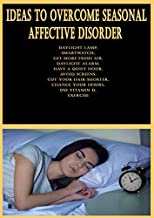Seasonal Affective Disorder
A mood disorder characterized by depression that occurs at the same time every year.
Seasonal affective disorder occurs in climates where there is less sunlight at certain times of the year.
Symptoms include fatigue, depression, hopelessness, and social withdrawal.
Treatment includes light therapy (phototherapy), talk therapy, and medications.
Cluster Number:
Wiki Number: PW198
Diagnosis: Seasonal Affective Disorder
US Patients: 1.4% in Florida; 9.9% in Alaska
World Patients: Finland, 9.5%, Ireland, 20%
Sex Ratio:
Age Onset:
Brain Area: retinohypothalamic tract, suprachiasmatic nucleus, retina and pineal gland.
Symptoms: depressed in winter with over-sleeping, over-eating and too little energy, depressed thinking, loss of interest in activities
Progression:
Causes: lack of available natural light
Medications: SSRI’s, Vitamin D, and othrs
Therapies: light therapy, melatonin, ionized air administration and CBT. Due to skin cancer threat, direct sunlight should be avoided. Eat fish.
Youtube Video: How toknow if you have Seasonal Affective Disorder
Amazon or Library Book:
Ideas To Overcome Seasonal Affective Disorder
Click the book to link or order from Amazon.

